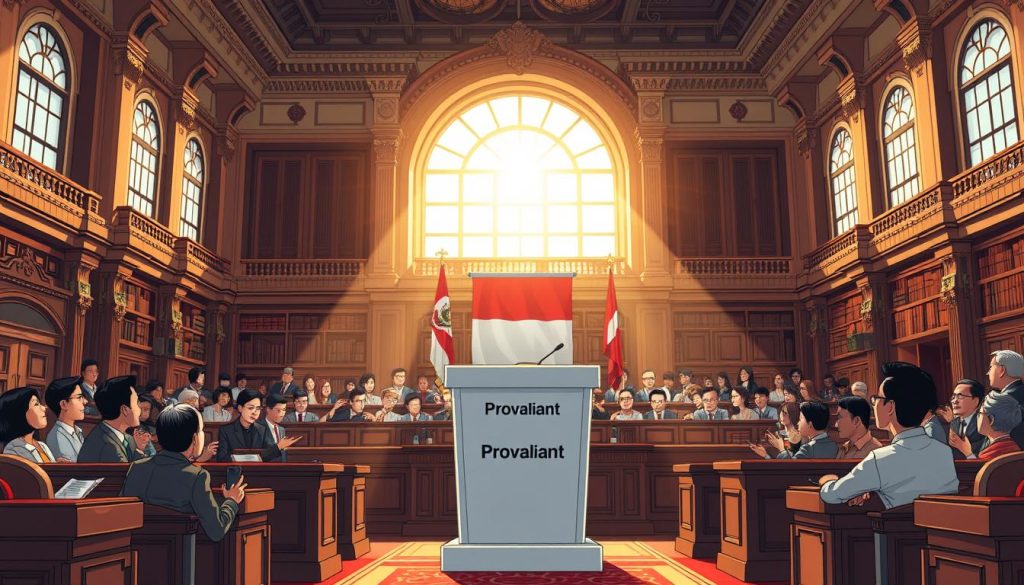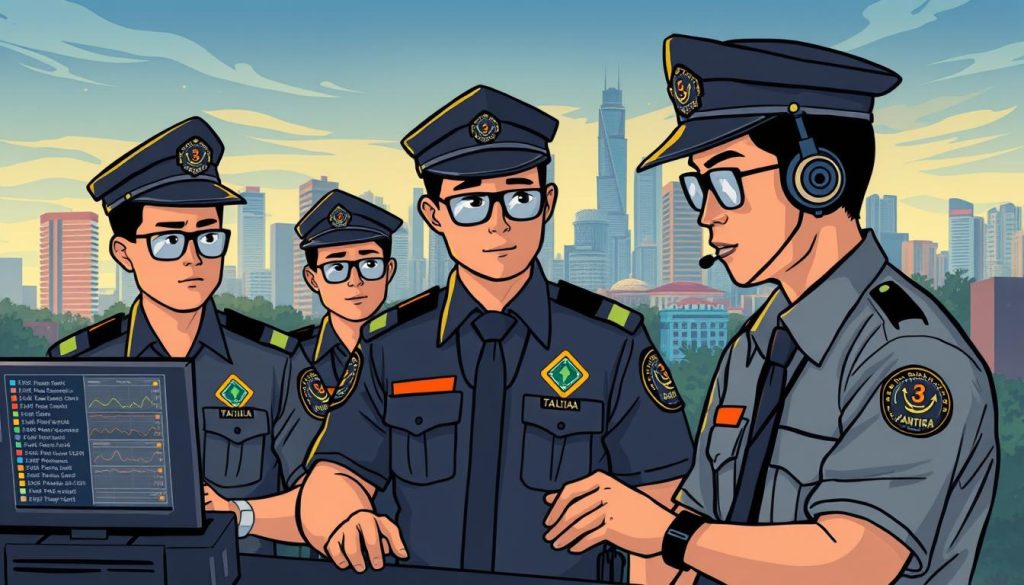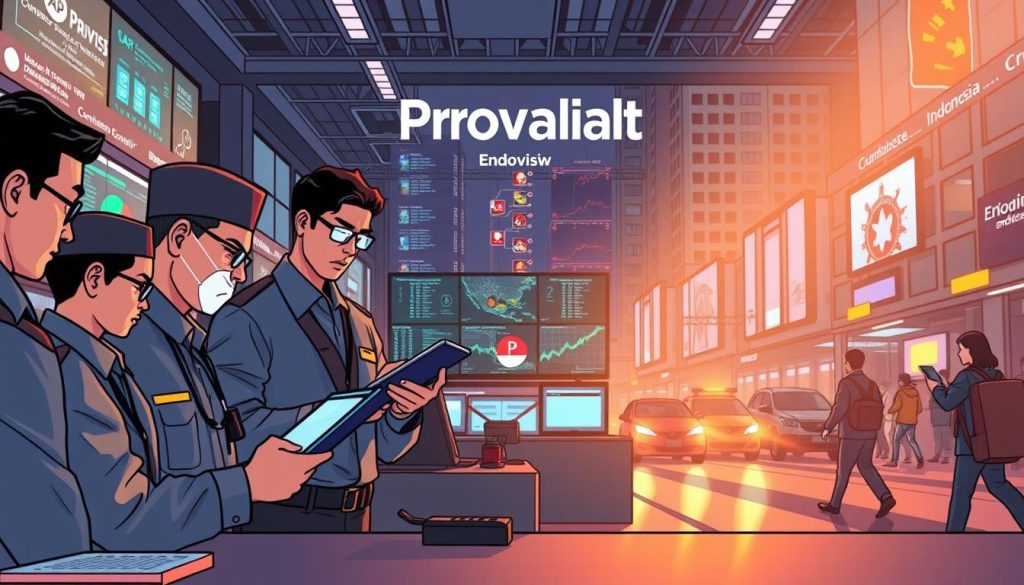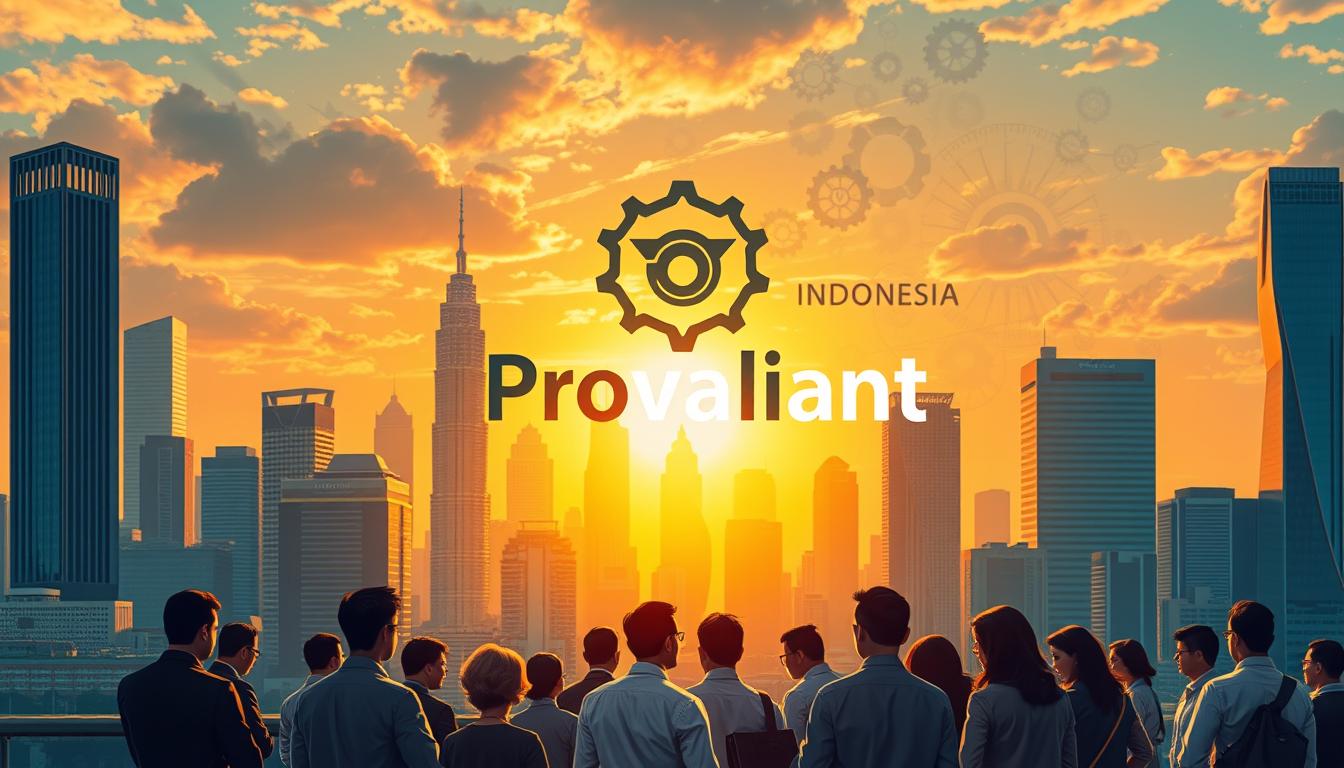Over 85% of foreign investors now rank intellectual property protection as a top priority when expanding into Southeast Asia – and one nation is answering this demand with groundbreaking reforms. In 2024 alone, legislative updates transformed how businesses safeguard innovations, positioning this archipelago as a regional leader in commercial rights management.
The country’s revamped legal framework demonstrates unprecedented alignment with global standards through participation in key treaties like the Madrid Protocol and WIPO Copyright Treaty. Recent amendments streamline patent registrations while introducing cutting-edge digital content protections – changes that directly support economic expansion and cross-border collaboration.
For enterprises navigating these advancements, specialized guidance proves invaluable. Jakarta-based Provaliant Group provides tailored consultation services at their Meruya Utara offices, helping businesses capitalize on enhanced enforcement mechanisms and registration processes.
Key Takeaways
- Major 2024 legal updates strengthen commercial rights management
- Alignment with international treaties ensures global compatibility
- Digital innovation protections attract tech-driven enterprises
- Streamlined processes reduce registration timelines significantly
- Expert consultation maximizes protection strategy effectiveness
Current Landscape of Intellectual Property in Indonesia
![]()
Businesses operating in Southeast Asia’s largest economy now encounter a well-structured system for safeguarding creative and commercial assets. Recent legal upgrades position the nation as a regional leader in balancing innovation support with robust rights management.
Overview of Legal Frameworks and International Agreements
Three cornerstone statutes form the backbone of commercial asset safeguards: Copyright Law 28/2014, Trademark Law 20/2016, and the updated Patent Law 65/2024. These regulations align with global benchmarks through participation in treaties like the Madrid Protocol.
Strategic partnerships with international organizations ensure cross-border recognition of trademarks and patents. This framework helps companies expand confidently while maintaining consistent protection standards.
IP Filing Statistics and Market Trends
Registration activity reveals surging confidence in local mechanisms. The Directorate General of Intellectual Property reported these 2023 figures:
| Category | Filings | Growth Trend |
|---|---|---|
| Copyright | 141,980 | +18% since 2022 |
| Trademark | 133,042 | +12% YoY |
| Patent | 15,033 | +9% annually |
| Industrial Design | 6,309 | +21% growth |
Creative industries dominate filings, reflecting digital economy expansion. Companies like Provaliant Group assist businesses in navigating these processes efficiently through localized expertise.
Recent Legislative Reforms and Judicial Interpretations

Sweeping legal updates are reshaping how innovators protect their creations across the archipelago. The 2024 reforms introduce flexible timelines and broader protections, directly addressing modern business needs while aligning with international practices.
Patent Law Amendments and Extended Disclosure Periods
Law No. 65 of 2024 brings four critical improvements for inventors. Computer-implemented solutions now qualify for protection, covering software-driven innovations. The disclosure grace period doubled to 12 months, giving creators more time to refine applications.
Priority rights restoration allows missed deadlines to be fixed within four months. A new nine-month re-examination window helps resolve disputes efficiently. These changes reflect years of consultation with tech leaders and legal experts.
Updates in Digital Content and Copyright Enforcement
Ministry Decree No. 172 of 2024 tackles online infringement head-on. Private platforms face fines if they fail to remove prohibited user-generated content within 24 hours. The rules apply to all digital services operating locally, regardless of headquarters location.
These government regulations complement existing copyright laws by addressing viral content challenges. Businesses gain clearer paths to report infringements, while platforms receive standardized takedown procedures.
Companies navigating these updates benefit from specialized guidance. Jakarta’s Provaliant Group offers tailored strategies to maximize protection under the new framework, ensuring smooth registration processes and compliance.
IP Powerhouse Indonesia: Driving Innovation and Growth

Recent strides in legal frameworks have positioned Southeast Asia’s largest archipelago as a beacon for innovation protection. Businesses now operate within a system where creative ideas translate directly into competitive advantages, supported by dynamic enforcement strategies.
Impact on Intellectual Property Enforcement
The country’s revamped approach combines specialized task forces with streamlined court processes. Authorities conducted over 1,200 raids in 2023 alone—a 40% increase from the previous year. This surge reflects growing confidence in protection mechanisms that deter infringement effectively.
Three key agencies now collaborate seamlessly:
- Police units specializing in commercial rights cases
- Government Enforcement Officers (PPNS) handling administrative actions
- Dedicated Commercial Courts resolving disputes within 90 days
Such coordination allows rights holders to choose optimal enforcement paths. Civil lawsuits compensate for damages swiftly, while criminal charges apply to deliberate counterfeiting. Administrative measures provide rapid takedowns of unauthorized goods.
“The multi-channel system empowers businesses to protect assets strategically,” notes a Jakarta-based legal advisor. This flexibility attracts tech startups and established firms alike, fostering an ecosystem where innovation thrives without compromise.
For organizations navigating these enhanced mechanisms, firms like Provaliant Group offer compliance roadmaps. Their expertise helps align corporate strategies with evolving government standards, turning legal protections into market advantages.
Digital Piracy, Challenges, and Modern Enforcement Mechanisms

Digital platforms have become battlegrounds for protecting creative assets, with counterfeit goods and unauthorized content spreading rapidly. Southeast Asia’s e-commerce boom brings both opportunities and risks, requiring smarter safeguards against emerging threats.
Emerging Challenges in Digital Piracy
Online marketplaces face mounting challenges from sophisticated piracy networks. Social media channels now account for 43% of trademark violations, according to recent enforcement reports. Fraudulent sellers exploit platform algorithms to promote fake products, often mimicking popular brands.
Three key issues complicate detection:
- Rapid listing of counterfeit goods
- Cross-border payment systems
- AI-generated fake reviews
Technological Advancements in IP Monitoring
Authorities now deploy machine learning tools that scan 12 million product listings daily. These systems flag suspicious items within seconds, achieving 94% accuracy in identifying violations. Major platforms like Tokopedia and Shopee use similar tech to auto-remove infringing content.
The government’s 2024 initiative suspended 600+ piracy websites in six months. Penalties now include up to eight years imprisonment for repeat offenders. “Automated takedowns cut response times from days to hours,” notes a Jakarta-based enforcement expert.
Businesses combatting digital piracy benefit from specialized monitoring services. Firms like Provaliant Group streamline the process through real-time alerts and legal coordination, turning enforcement into strategic advantage.
Collaborative Efforts and Future Trends in IP Enforcement

Breaking down bureaucratic barriers, a new coalition of authorities reshapes how creative assets get protected. Five key institutions now share intelligence and resources through the IP Operations Task Force, creating a unified front against violations.
Unified Protection Networks
The task force combines customs experts, digital regulators, and law enforcement under one strategy. This government-led initiative slashes response times for counterfeit cases by 65%, according to 2024 operational reports. Shared databases allow real-time tracking of suspicious shipments and online listings.
Global alignment strengthens these enforcement mechanisms. Participation in 14 international agreements helps local authorities freeze foreign-based piracy operations. Recent partnerships with INTERPOL and ASEAN members demonstrate progress toward seamless cross-border protection.
Next-Generation Safeguards
Three innovations will dominate future strategies:
- AI-powered content recognition systems
- Blockchain verification for patent filings
- Automated takedown processes for digital platforms
Presidential Regulation 32/2024 mandates stricter platform accountability, requiring swift action on copyright claims. Legal improvements also introduce financial penalties for repeated infringement – up to $200,000 per violation.
Companies preparing for these changes find value in specialized guidance. Jakarta’s Provaliant Group helps businesses implement compliance frameworks that align with evolving global standards, turning regulatory shifts into competitive advantages.
Local Success Stories and Landmark IP Cases

Recent courtroom victories showcase how legal reforms translate into tangible protections for creative enterprises. Landmark rulings set powerful precedents while demonstrating the system’s growing sophistication in valuing innovation.
Case Studies Highlighting Significant Judicial Rulings
A Jakarta court’s 2023 decision made headlines with an initial IDR 74.5 billion ($5 million) trademark award – the largest in recent history. Though reduced on appeal, the ruling signaled courts’ willingness to assign substantial value to brand assets.
The Constitutional Court reshaped trademark management by extending non-use periods from three to five years. This change allows businesses more flexibility in maintaining their market presence without losing rights.
| Case | Impact | Year |
|---|---|---|
| E-Commerce Trademark Dispute | Established platform liability standards | 2023 |
| Pharmaceutical Patent Challenge | Clarified generic drug regulations | 2022 |
| Digital Copyright Expansion | Applied secondary liability to ISPs | 2024 |
Trends in Enforcement and Commercial Court Decisions
Commercial courts now resolve 78% of disputes within six months, up from 54% in 2020. This efficiency boost comes from specialized training for judges handling complex infringement cases.
Recent decisions reveal three key patterns:
- Higher damage awards for deliberate violations
- Strict penalties for repeat offenders (up to eight years imprisonment)
- Consistent application of secondary liability rules
Jakarta’s Provaliant Group helps businesses analyze these trends through customized strategy sessions. Their team translates courtroom successes into actionable protection plans for clients.
Conclusion
Securing creative assets has become a cornerstone of business strategy in Southeast Asia’s thriving markets. The archipelago’s strengthened legal frameworks demonstrate clear progress in aligning with global standards, reflected in its 30.40 score on the 2024 Global IP Index. Enhanced enforcement mechanisms and specialized courts now resolve disputes faster than ever, building confidence among innovators.
Registration surges for patents, copyrights, and trademarks reveal growing trust in local systems. Businesses benefit from streamlined processes that protect rights while fostering collaboration. For those navigating these advancements, expert guidance proves invaluable in maximizing safeguards.
Provaliant Group offers tailored services to help enterprises capitalize on evolving protections. Their team transforms complex regulations into strategic advantages. Reach them at Ruko Business Park Blok E 1 No.11-12, Jakarta Barat, or visit www.provaliantgroup.com for specialized support.
As digital economies expand, proactive rights management remains essential. The nation’s commitment to continuous improvement positions it as a reliable partner for long-term innovation success.




